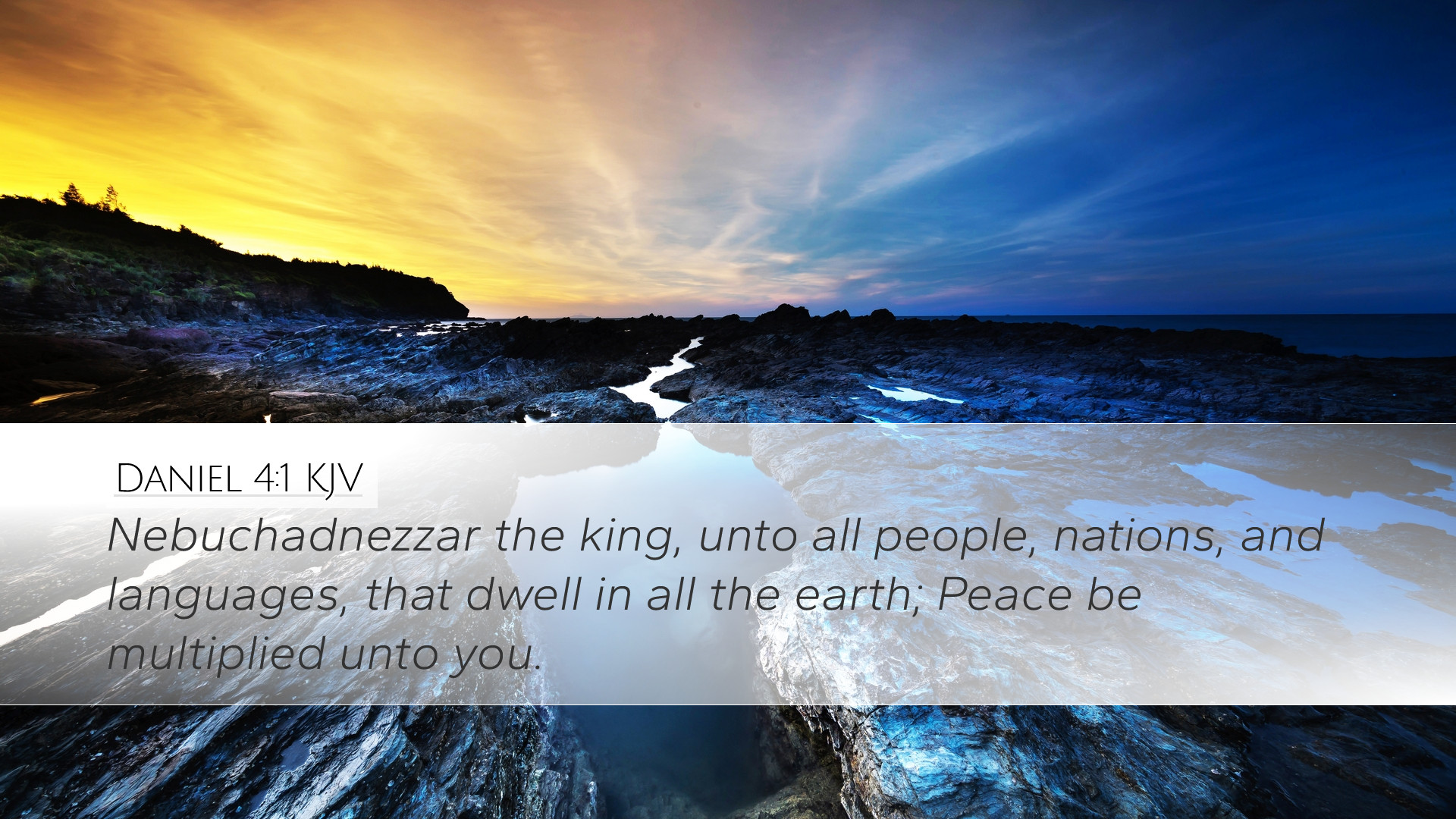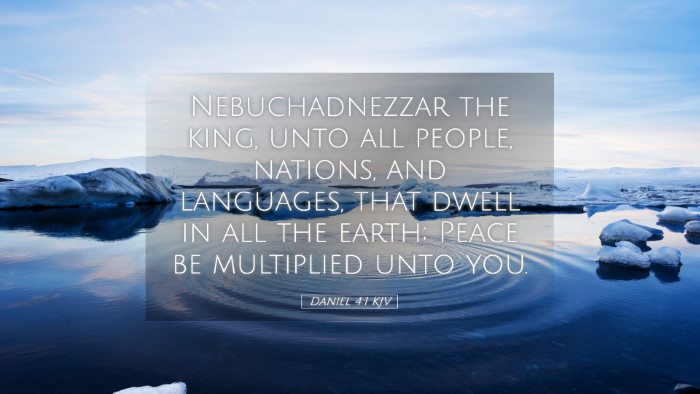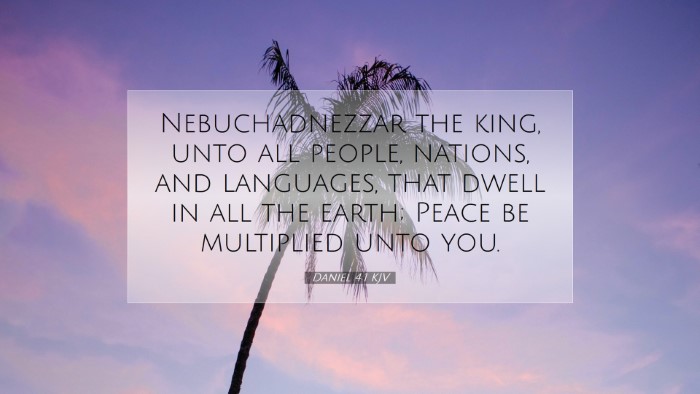Commentary on Daniel 4:1
Daniel 4:1 states: "Nebuchadnezzar the king, unto all people, nations, and languages, that dwell in all the earth; Peace be multiplied unto you."
Introduction
This verse serves as the introduction to one of the most significant chapters of the Book of Daniel, where King Nebuchadnezzar issues a proclamation reflecting on the greatness of God and His sovereignty over the kingdoms of men. This commentary seeks to explore the thematic implications of this verse, drawing from the insights provided by esteemed public domain commentators.
Contextual Background
Nebuchadnezzar, the Babylonian king, is a central figure in the Book of Daniel. His reign is marked by powerful military conquests and the establishment of a vast empire. In this verse, he directly addresses an audience that spans his entire dominion, which speaks to the reach and influence of his rule. However, it also foreshadows the spiritual journey he undergoes, culminating in a profound recognition of God's authority.
Insights from Commentators
Matthew Henry's Perspective
Matthew Henry observes that the king's proclamation signals a transition from paganism to a recognition of God's power. He notes that Nebuchadnezzar, initially a proud monarch, is guided by divine providence to understand the supremacy of the Most High God. Henry explains that this verse encapsulates the tendency of rulers to exalt themselves, yet it is God who ultimately reigns over all.
Albert Barnes' Observations
Albert Barnes emphasizes the universal nature of Nebuchadnezzar's address. He points out that the king’s reflection on peace is significant as it portrays a desire for goodwill among his subjects. Barnes further highlights the transformation in Nebuchadnezzar's character throughout the chapter, evolving from arrogance to humility. The phrase ‘peace be multiplied’ signifies a genuine concern for the welfare of his people, perhaps as a by-product of his own experiences with divinely ordained trials.
Adam Clarke's Analysis
Adam Clarke takes a slightly different approach by emphasizing the importance of the king's audience. He suggests that addressing "all people, nations, and languages" indicates the broadening of his understanding and authority. Clarke also underscores the significance of peace in the ancient world, linking it to the well-being of the state under divine favor. This proclamation reflects Nebuchadnezzar's awareness that his authority is not merely political but is deeply connected to the divine aspect of kingship.
Thematic Elements
- Divine Sovereignty: This verse encapsulates the theme of God's ultimate authority over earthly rulers. As Nebuchadnezzar prepares to share his testimony of God's greatness, readers are reminded of the Lord's control over kings and nations.
- The Nature of True Peace: The desire for peace expressed by the king can be seen as a desire for spiritual wholeness, a peace that transcends political stability and is rooted in a relationship with God.
- Transformation and Humility: The narrative of Nebuchadnezzar is one of transformation. His proclamation serves as a prelude to the lessons he has learned regarding humility and dependence on God, which are central themes in the larger context of the chapter.
Conclusions for Study
For pastors, students, theologians, and scholars, Daniel 4:1 serves as a profound entry into understanding the complexities of divine-human interaction. It offers rich material for teaching on the nature of peace, the importance of humility in leadership, and the recognition of God’s sovereignty.
Further Reflections
As we reflect on this verse, we are encouraged to consider our own leadership roles and the extent to which we acknowledge God's sovereignty in our lives and ministries. Factoring in Nebuchadnezzar's ultimate acknowledgment of God can lead to vital questions about our attitudes towards authority, peace, and the recognition of divine providence.
This brief reflection on Daniel 4:1 pulls from the wealth of wisdom available in the writings of Matthew Henry, Albert Barnes, and Adam Clarke, providing a comprehensive overview appropriate for deep theological engagement and personal application.


